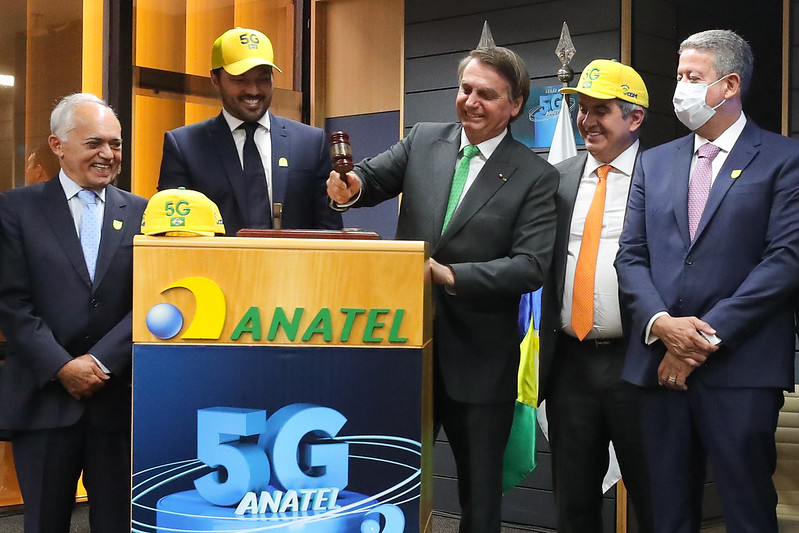With a delay of two and a half years, Brazil has finally begun auctioning its 5G spectrum to telecom companies. The country’s “big 3” players in the sector — Vivo, TIM, and Claro, responsible for 80 percent of the mobile telephone market — snapped up the juiciest assets. Still, the addition of four new operators could be beneficial to consumers.
After the first of two days, the auction saw 16 frequency segments distributed for bids amounting to BRL 7.1 billion (USD 1.2 billion). When all is said and done, the government hopes to raise BRL 50 billion in tenders and investment pledges.
As a matter of fact, one of the most sought-after assets — the 700 MHz frequency band — wasn’t actually about 5G per se, instead it will be used to amplify 4G coverage in Brazil along federal roads and remote cities off the grid. With a long reach, the frequency could cater to agricultural producers who still face hurdles trying to connect their properties to the internet.
The winning bidder for the 700 MHz band was newcomer Winity II Telecom, which paid BRL 1.4 billion, offering an 805-percent premium over the minimum bid. The company — controlled by hedge fund Pátria, which has multiple infrastructure assets in Brazil and Latin America — has recently set up shop and still waits for regulatory approval to operate.
The filet mignon in Brazil’s 5G auction, however, was the 3.5 GHz band, seen as the country’s “entry door” to 5G. Its attraction comes from the fact that it is capable of combining the much-lauded speed of 5G — designed to support a 100-times increase in traffic capacity and network efficiency — with broader and more stable coverage.
This band was split into 12 segments, four of which were nationwide. Vivo, Claro, and TIM snatched three of them. The fourth went unsold, as smaller players refused to bid and the Big 3 were unable to acquire more than one segment.
The 3.5 GHz winners must offer 5G in...


 Search
Search






































